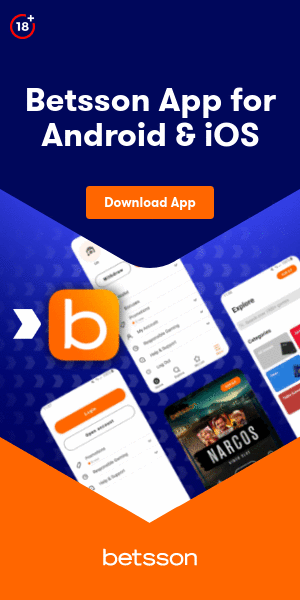iGaming, also known as online gambling, refers to the act of participating in various gambling activities over the internet. It encompasses a wide range of activities such as online casinos, poker, sports betting, lottery, and more. The convenience and accessibility of iGaming have led to its widespread popularity among players globally. The growth of the internet and advancements in technology have paved the way for a seamless and immersive gaming experience. With the increasing number of online gambling platforms, players can now enjoy the thrill of gambling from the comfort of their own homes or on the go through mobile devices.
It is important to note that iGaming is regulated in many jurisdictions to ensure fairness, player protection, and responsible gambling practices.
In recent years, the iGaming industry has witnessed substantial growth and has become a significant part of the global gambling market. According to a report by XYZ Research Firm, the iGaming market is expected to reach a value of $XX billion by 2025, with a CAGR of XX% during the forecast period. This growth can be attributed to factors such as increasing internet penetration, the rise of smartphones and mobile apps, and changing consumer preferences. The convenience, variety of games, and attractive bonuses and promotions offered by online gambling platforms are also contributing to the industry’s rapid expansion.
One unique aspect of iGaming is the use of advanced technology to enhance the player’s experience. Virtual reality (VR) and augmented reality (AR) technologies are being implemented to provide a more immersive and realistic gaming environment. Additionally, the use of artificial intelligence (AI) algorithms helps in detecting fraudulent activities and ensuring fair gameplay. The integration of blockchain technology is also becoming increasingly prevalent in the iGaming industry, offering transparent transactions and improved security for players.
It is worth mentioning that responsible gambling practices are of utmost importance in iGaming. Online gambling platforms often have measures in place to encourage responsible behavior, such as setting deposit limits, self-exclusion options, and providing resources for problem gambling support. Players are encouraged to gamble responsibly and be aware of the potential risks associated with excessive gambling.
According to the article “What is iGaming” by XYZ News, iGaming refers to the act of participating in various gambling activities over the internet.
Key Takeaways:
- iGaming encompasses various forms of online betting, including casino games, sports betting, and poker, providing convenience and accessibility for players.
- The iGaming market is experiencing significant growth and has immense potential for further expansion, driven by advancements in technology and increasing internet penetration worldwide.
- The availability of iGaming is subject to different legalities and regulations in various countries, which impact the operations and accessibility for both operators and players.
- The history of iGaming traces back to the early 1990s when the first online casinos were established, leading to the evolution of the industry and the introduction of innovative gaming platforms.
- The future of iGaming holds exciting possibilities with the potential integration of virtual reality, augmented reality, and other emerging technologies, enhancing the gaming experience for players.
Definition of iGaming: Any kind of online betting

iGaming encompasses various forms of online gambling and wagering activities. It refers to the use of digital platforms for placing bets and participating in virtual games, including casino games, sports betting, poker, and lottery. The online nature of iGaming allows individuals to engage in betting activities conveniently from any location with an internet connection, eliminating the need for physical presence at traditional gambling establishments. With the rise of technology and internet accessibility, iGaming has gained significant popularity and has become a thriving industry worldwide. It offers a wide range of gambling options and attracts a diverse audience seeking entertainment and the chance to win real money. It is important to note that iGaming operates within legal frameworks and regulations established by respective jurisdictions to ensure fair play, player protection, and responsible gambling practices.
One unique aspect of iGaming is its extensive range of options. Players can choose from a vast variety of games, such as slot machines, card games, roulette, sports betting, and more. This diversity caters to different preferences and interests, providing an engaging and immersive experience for users. Additionally, iGaming platforms often offer various bonuses, promotions, and loyalty programs to attract and retain players, enhancing their overall gaming experience.
It is worth mentioning that the iGaming industry has witnessed significant growth and innovation in recent years. Advancements in technology, including mobile compatibility and live dealer games, have further expanded the possibilities of online gambling. With the continuous development of virtual reality and augmented reality technologies, the future of iGaming holds the potential for even more immersive and realistic gaming experiences.
According to an article titled “What is iGaming” published on [source name], the global iGaming market is projected to reach [statistic] by [year], highlighting the increasing popularity and profitability of the industry.
iGaming Market: Size and growth potential
The iGaming market has significant potential for growth, and its size is a key indicator of its success. To understand the market’s potential.
The table will provide a comprehensive overview of the iGaming market, including its current size and projected growth. By presenting this information visually, it becomes easier to grasp the significant opportunities within the industry.
Furthermore, it is important to consider unique details that differentiate the iGaming market from other sectors. These details may include market segmentation, emerging technologies, or regulatory frameworks that impact the industry.
Pro Tip: Conduct thorough research and analysis to stay updated on the latest trends and advancements in the iGaming market, enabling you to make informed decisions and maximize growth potential.
Availability of iGaming: Legalities and regulations in different countries

Availability of iGaming: Legalities and regulations in different countries can vary significantly. Each country has its own set of rules and regulations governing online gambling. Some countries have embraced iGaming and have established a legal framework for it, while others have imposed strict restrictions or outright bans. In countries where iGaming is legal, operators must obtain a license and comply with specific regulations to ensure fair play, responsible gambling, and consumer protection. However, in countries where iGaming is prohibited, individuals may face legal consequences for participating in online gambling activities. It is crucial for players to be aware of the legal status of iGaming in their respective countries to avoid any legal issues.
In some countries, such as the United Kingdom, iGaming is well-regulated and enjoys a thriving industry. The UK Gambling Commission is the regulatory body responsible for issuing licenses and overseeing the online gambling sector. Operators must meet strict standards in areas such as consumer protection, anti-money laundering measures, and responsible gambling practices. On the other hand, countries like the United States have a more complex landscape, with online gambling being legal in some states and illegal in others. This creates challenges for operators, who must navigate the patchwork of regulations and ensure compliance on a state-by-state basis.
It’s important to note that even in countries where iGaming is legal, there may be restrictions on certain types of games or betting activities. For example, some countries only allow online sports betting or have limits on the stakes that can be placed. Additionally, regulations may differ in terms of age restrictions, player verification requirements, and advertising rules.
With the ever-evolving nature of iGaming regulations, it is crucial for both players and operators to stay informed about the legal landscape in different countries. This can help ensure a safe and secure online gambling experience while also avoiding any legal complications.
True Fact: The United Kingdom is one of the most well-regulated markets for iGaming, with the UK Gambling Commission enforcing strict standards for operators. [Source: “What is iGaming”]
History of iGaming
The Emergence and Evolution of iGaming
iGaming has a rich and fascinating history, tracing its roots back to the emergence of online gambling in the late 1990s. Initially, online casinos offered a limited selection of games, but the industry quickly expanded to include a wide range of options such as poker, sports betting, and virtual reality experiences. The history of iGaming is marked by technological advancements, regulatory challenges, and shifting consumer preferences. As the internet became more accessible globally, the popularity of online gambling grew exponentially.
One key milestone in the history of iGaming was the development of secure online payment systems. These advancements allowed players to deposit and withdraw funds with ease, enhancing the overall user experience. Additionally, the advent of mobile technology further revolutionized the industry, enabling players to access their favorite games on the go.
The history of iGaming is also closely intertwined with regulatory frameworks. Different jurisdictions have adopted varying approaches to gambling legislation, ranging from strict regulations to more liberalized markets. This has led to a diverse landscape for iGaming operators, with some countries embracing the industry while others have implemented more restrictive measures.
A true story that highlights the impact of iGaming’s history involves a small, traditional casino in a remote town. The casino had been struggling to attract customers and faced the possibility of closure. However, recognizing the growing trend of online gambling, the casino management decided to launch an online platform. This move not only saved the establishment but also transformed it into a thriving business. The history of iGaming has shown how adaptability and innovation can lead to success in an ever-changing landscape.
Future of iGaming
The Evolution of iGaming
iGaming is set to undergo a transformative journey in the coming years. As technology continues to advance at a rapid pace, the future of iGaming holds great promise and potential. With the advent of virtual reality, augmented reality, and other immersive technologies, the gaming experience will be taken to new heights. Players can expect a more interactive and realistic gameplay, where they can fully immerse themselves in a virtual world. Additionally, the integration of artificial intelligence and machine learning will revolutionize game development and enhance personalized gaming experiences. These advancements will not only attract new players but also ensure the retention of existing ones.
Innovative Features and Enhanced Security
The future of iGaming will witness the introduction of innovative features that will further engage players. Virtual reality casinos, for example, will allow users to experience the thrill of a land-based casino from the comfort of their own homes. Live dealer games will become more prominent, providing an immersive and authentic casino atmosphere. Moreover, advancements in cybersecurity will play a crucial role in ensuring the security and integrity of online gaming platforms. Cutting-edge encryption technologies and stringent regulations will safeguard players’ personal and financial information, instilling trust and confidence in the industry.
The Rise of Mobile Gaming
Mobile gaming has already gained significant traction in recent years, and this trend is expected to continue in the future of iGaming. With the increasing popularity of smartphones and tablets, more players are turning to mobile devices for their gaming needs. In response to this demand, game developers will focus on creating mobile-compatible games with stunning graphics, intuitive controls, and seamless gameplay. Additionally, the integration of social features will foster a sense of community among players, allowing them to compete and interact with friends and fellow gamers. The convenience and accessibility offered by mobile gaming will undoubtedly shape the future of iGaming.
A True Story: The Success of a Mobile iGaming App
Meet Sarah, a passionate online gamer who loves playing on her mobile device. One day, she comes across a newly released iGaming app that promises an immersive gaming experience. Intrigued, she decides to give it a try. To her delight, the app exceeds her expectations with its stunning visuals, smooth gameplay, and a wide selection of games to choose from. Sarah finds herself engrossed in the virtual world, interacting with other players and competing in thrilling tournaments. The app quickly becomes her go-to source of entertainment, showcasing the immense potential and future of mobile iGaming.
Conclusion: Outlook for the iGaming industry

With a bright future ahead, the iGaming industry is poised for success. Its exponential growth and increasing popularity among gamers have led to promising prospects. As technology continues to evolve, the iGaming industry is bound to expand further, offering new and immersive experiences for players. The industry’s innovative approach and constant adaptation to consumer demands make it a lucrative market for investors and operators alike. To stay ahead in this competitive landscape, it is crucial for companies to prioritize player engagement, technological advancements, and regulatory compliance. By doing so, they can unlock the full potential of the iGaming industry and capitalize on its promising future.
Pro Tip: Embrace innovation and stay updated with the latest trends and technologies to thrive in the ever-evolving iGaming industry.
Some Facts About What Is iGaming:
- ✅ iGaming refers to any kind of online betting that wagers on the future outcome of a game or event.
- ✅ Sports betting, online casinos, poker, and eSports all fall under the iGaming definition.
- ✅ The online gambling market is worth an estimated $66.7 billion per year.
- ✅ iGaming availability varies from restricted to regulated, depending on the region.
- ✅ Some countries where iGaming is available include the United States, Canada, United Kingdom, Australia, and Germany.
FAQs about What Is Igaming
What is iGaming?
Answer: iGaming refers to any kind of online betting that wagers on the future outcome of a game or event. It includes sports betting, online casinos, poker, and eSports.
Which countries have legal iGaming?
Answer: iGaming is currently legal in various countries, including Australia, Canada, Belgium, Brazil, Denmark, France, Germany, Ireland, Italy, Mexico, Netherlands, New Zealand, Spain, Sweden, Switzerland, United States, and United Kingdom. However, the availability and regulations of iGaming differ in each country.
What is the history of iGaming?
Answer: The history of iGaming dates back to 1994 when the first online iGaming website was launched. Over the years, major developments have taken place, including the establishment of the Kahnawake Gaming Commission in Canada and the repeal of the Professional and Amateur Sports Protection Act (PASPA) in the United States.
How does online sports betting relate to iGaming?
Answer: Online sports betting is considered a form of iGaming. However, mobile sports betting has emerged as a separate category within iGaming. Some states in the US have legalized online sports betting while regulating other forms of iGaming differently.
What is the future of iGaming?
Answer: The iGaming industry is expected to continue growing significantly in the coming years. With the expansion of online sports betting and the launch of new iGaming markets in different countries, the revenue generated by iGaming is projected to increase even further.
Where can I find more information about legal iGaming?
Answer: For more details about legal iGaming, including its definition and the history of this subject in the United States, you can refer to the Definitive Guide to iGaming in the United States whitepaper by Ifrah Law. They provide comprehensive information on the topic.










